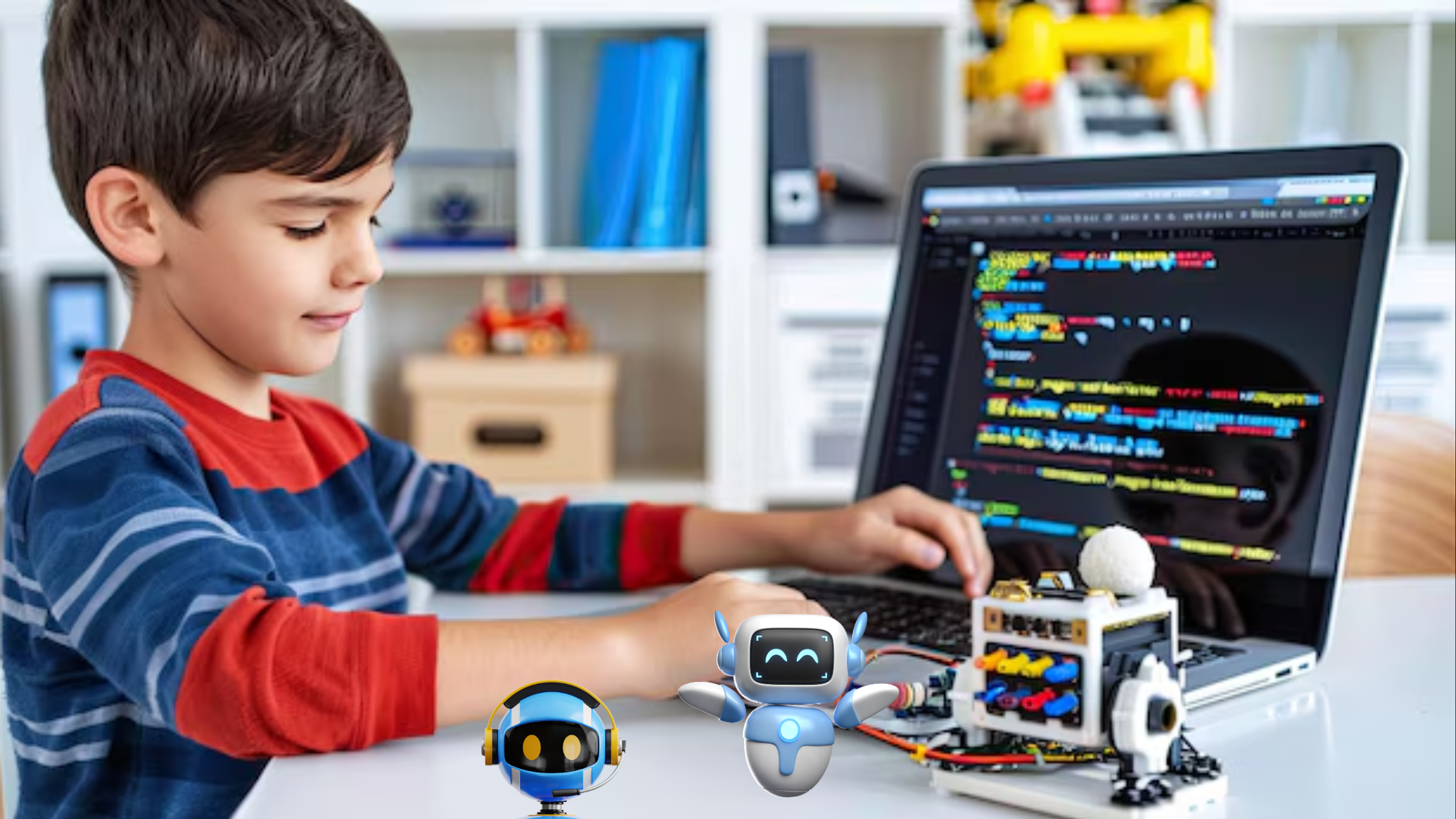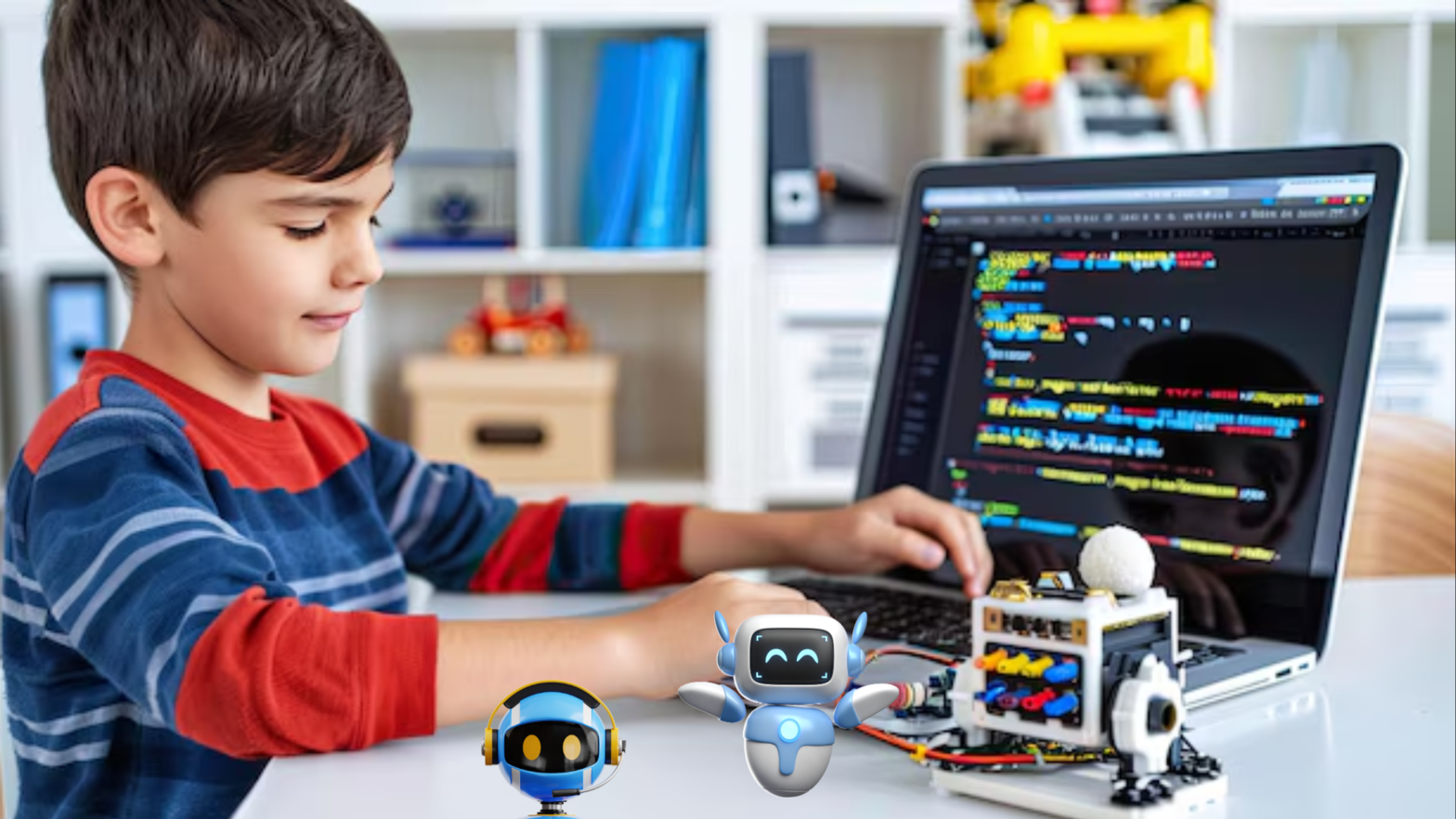In today’s fast-paced, technology-driven world, teaching kids how to code is no longer an option—it’s a necessity. While most parents link coding with future job prospects, there is much more to coding than meets the eye. Here’s a new perspective on why coding for kids is more than a passing fad, but a necessary skill for success in the digital age
- Coding Enhances Problem-Solving Skills Beyond Technology: Kids who learn to code do more than just write computer orders; they also learn how to think in a structured way. Coding helps kids learn how to break down hard tasks into steps they can handle. This logical method doesn’t just work in the digital world; it also helps solve problems in real life, promotes critical thinking, and sparks creativity.
- Coding Fuels Creativity Through Interactive Learning: Contrary to popular assumption, coding goes beyond numbers and logic. This creative approach lets teenagers understand their ideas. Coding lets students experiment and improve on their designs for games, websites, and apps. Immersive hands-on learning makes them technology creators, not consumers.
- Coding builds resilience through failure: One unique aspect of coding that often gets overlooked is how it helps kids build resilience. In coding, defects, and errors are unavoidable, but they provide an opportunity to learn from mistakes and gain perseverance. This teaches youngsters a vital life skill: failure is not the end, but a stepping stone to development. Each coding obstacle presents an opportunity to reconsider, retry, and finally succeed.
- Building the Right Mindset for Future Technologies: Teenagers’ future interactions with AI, robotics, and quantum computing will depend on their skills today. Most digital advances are based on coding, so kids may stay ahead by learning its rationale. Programming allows them to navigate and lead in a powered by AI future.
- Coding as a Language: Enhancing Cognitive Flexibility: Coding, the future language, increases cognitive flexibility in youngsters like any other language. Teaching kids programming syntax, logic, and flow develops different thinking skills. Cognitive flexibility is needed for coding and adjusting to new learning obstacles in any field.
- Digital Era: Inspiring Kids to Change the World: Kids are constantly surrounded by technology, so learning to code lets them engage with the digital world. Kids may use coding to create apps for sustainability, accessibility, and health. We enable students to shape their futures by teaching them to code.
- Not Just for Future Developers: Coding is not just for students who aspire to be coders, which is a key discovery. Coding teaches teamwork, communication, and logic, which are useful in any field. Your child’s lifelong attitude will benefit from coding, whether they become artists, mathematicians, engineers, or entrepreneurs.
Conclusion
Coding for kids goes into tech career preparation. It boosts resilience, creativity, and an attitude for tomorrow’s challenges. Coding is now a crucial tool that helps youngsters think creatively, innovate unafraid, and solve problems confidently. Instead of teaching children to code so they can land a job, let’s give them the tools they need to create the future we are incapable of.



